Even though this theory is in dispute, the story is intriguing.
One of the most popular theories, however, links Friday the 13th with the fall of a fearsome group of legendary warriors—the Knights Templar. Founded around 1118 as a monastic military order devoted to the protection of pilgrims traveling to the Holy Land following the Christian capture of Jerusalem during the First Crusade, the Knights Templar quickly became one of the richest and most influential groups of the Middle Ages, thanks to lavish donations from the crowned heads of Europe, eager to curry favor with the fierce Knights. By the turn of the 14th century, the Templars had established a system of castles, churches and banks throughout Western Europe. And it was this astonishing wealth that would lead to their downfall. For the Templars, that end began in the early morning hours of Friday, October 13, 1307.
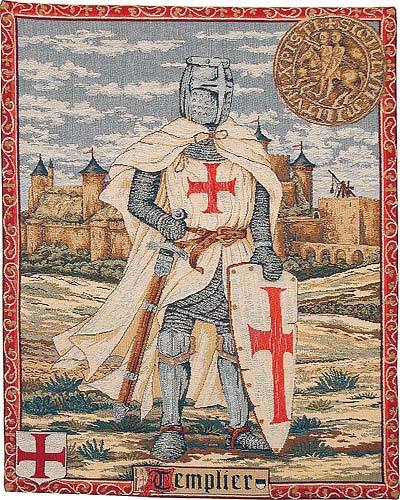
Project 49’ was the name code for our second project with the ‘Altaïr of Atlas Astrophotographers’ team, an idea that looked a bit crazy on paper, but that we knew could only be achieved under optimum conditions… The idea was to produce an ultra-detailed image of the Rho Ophiuchi complex, as well as some of its neighbours in the Scorpius constellation, using remotely our setup in Morocco. As this region is about 15° higher in the sky than our home in France, this dream became a reality ! With our instrument in place in the Atlas Mountains, we had to make a 7*7 mosaic (49 tiles), to achieve our goal. A project of this kind already takes up a huge amount of time and material resources (post-processing), so we set ourselves the challenge of producing all our tiles in a single exposure for each filter, without any stacking, and all in LHaRGB using a monochrome camera. 358ly distant.
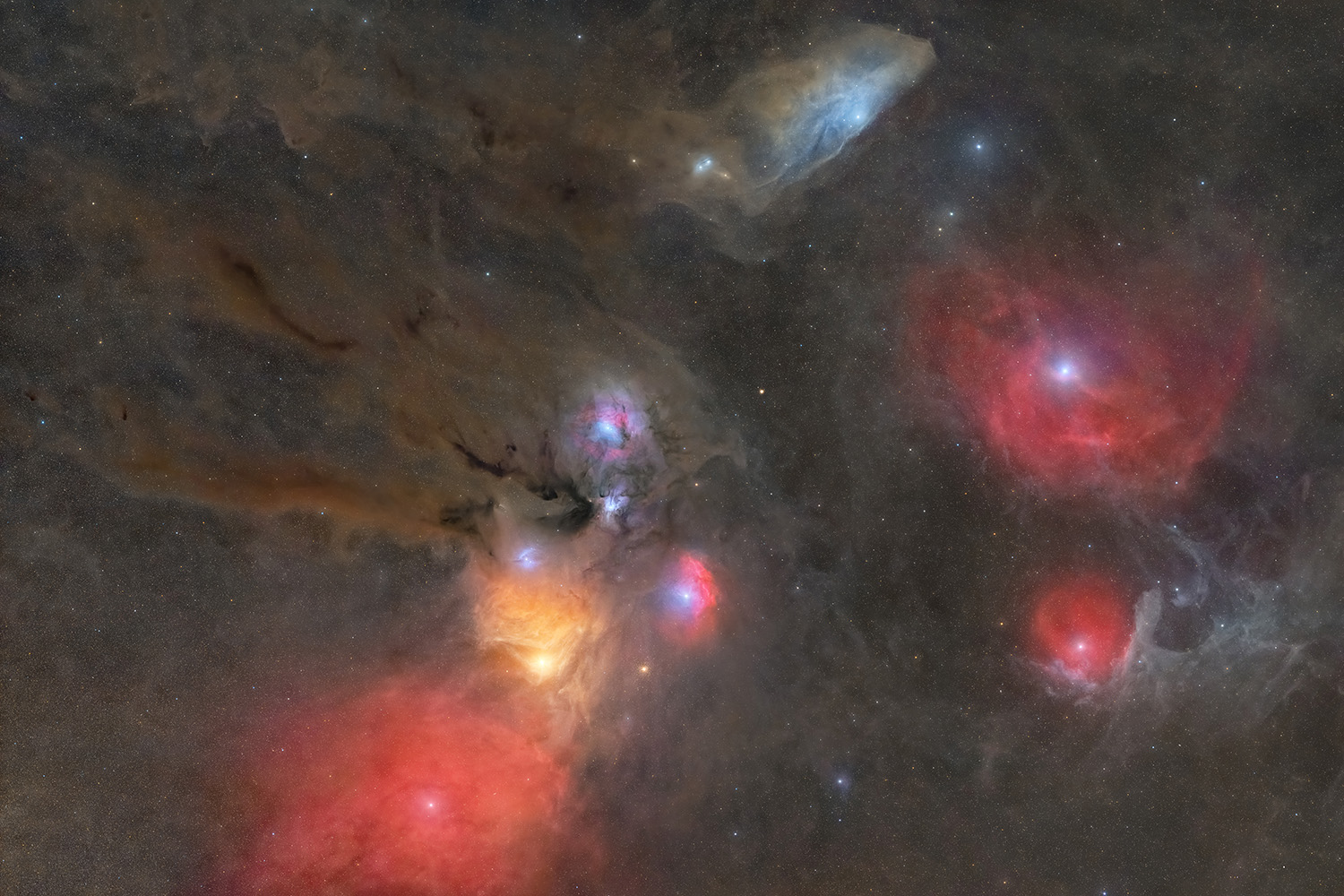
William Smith Monroe (September 13, 1911 – September 9, 1996) was an American mandolinist, singer, and songwriter, and created the bluegrass music genre. Because of this, he is often called the “Father of Bluegrass“.
The genre takes its name from his band, the Blue Grass Boys, who named their group for the bluegrass of Monroe’s home state of Kentucky. He described the genre as “Scottish bagpipes and ole-time fiddlin’. It’s Methodist and Holiness and Baptist. It’s blues and jazz, and it has a high lonesome sound.”
Monroe was born on his family’s farm near Rosine, Kentucky, the youngest of eight children of James Buchanan “Buck” and Malissa (Vandiver) Monroe. His mother and her brother, James Pendleton “Pen” Vandiver, were both musically talented, and Monroe and his family grew up playing and singing at home.
Bill was of Scottish and English heritage. Because his older brothers Birch and Charliealready played the fiddle and guitar, Bill was resigned to playing the less desirable mandolin. He recalled that his brothers insisted that he remove four of the mandolin’s eight strings so he would not play too loudly.
see full post...Leon Brown “Chu” Berry (September 13, 1908 – October 30, 1941 Wheeling, WV) was an American jazz tenor saxophonist during the 1930s. He is perhaps best known for his time as a member of singer Cab Calloway‘s big band.
According to music critic Gary Giddins, musicians called him “Chu” either because he chewed on the mouthpiece of his saxophone or because he had a Fu Manchu mustache. Berry died at 33 on October 30, 1941, in Conneaut, Ohio, after being in a car accident.
see full post...
Arnold Schoenberg or Schönberg (13 September 1874 – 13 July 1951) was an Austrian and American composer, music theorist, teacher and writer. He was among the first modernists who transformed the practice of harmony in 20th-century classical music, and a central element of his music was its use of motives as a means of coherence. He propounded concepts like developing variation, the emancipation of the dissonance, and the “unity of musical space“.
Schoenberg’s early works, like Verklärte Nacht (1899), represented a Brahmsian–Wagnerian synthesis on which he built. Mentoring Anton Webern and Alban Berg, he became the central figure of the Second Viennese School. They consorted with visual artists, published in Der Blaue Reiter, and wrote atonal, expressionist music, attracting fame and stirring debate. In his String Quartet No. 2 (1907–1908), Erwartung (1909), and Pierrot lunaire (1912), Schoenberg visited extremes of emotion; in self-portraits he emphasized his intense gaze. While working on Die Jakobsleiter (from 1914) and Moses und Aron (from 1923), Schoenberg confronted popular antisemitism by returning to Judaism and substantially developed his twelve-tone technique. He systematically interrelated all notes of the chromatic scale in his twelve-tone music, often exploiting combinatorial hexachords and sometimes admitting tonal elements.
Schoenberg resigned from the Prussian Academy of Arts (1926–1933), emigrating as the Nazis took power; they banned his (and his students’) music, labeling it “degenerate“. He taught in the US, including at the University of California, Los Angeles (1936–1944), where facilities are named in his honor. He explored writing film music (as he had done idiosyncratically in Begleitungsmusik zu einer Lichtspielscene, 1929–1930) and wrote more tonal music, completing his Chamber Symphony No. 2 in 1939. With citizenship (1941) and US entry into World War II, he satirized fascist tyrants in Ode to Napoleon (1942, after Byron), deploying Beethoven’s fate motif and the Marseillaise. Post-war Vienna beckoned with honorary citizenship, but Schoenberg was ill as depicted in his String Trio (1946). As the world learned of the Holocaust, he memorialized its victims in A Survivor from Warsaw (1947). The Israel Conservatory and Academy of Music elected him honorary president (1951).
His innovative music was among the most influential and polemicized of 20th-century classical music. At least three generations of composers extended its somewhat formal principles. His aesthetic and music-historical views influenced musicologists Theodor W. Adorno and Carl Dahlhaus. The Arnold Schönberg Center collects his archival legacy.
see full post...Whereas the Verdiales is a lively folk dance associated with violins and tambourines, the Abandolao is traditonally a slower song accompanied on the guitar. In fact, abandolao means “to the guitar,” bandola being a regional synonym for ‘guitar.’ The form is also known as Fandango Abandolao. The Abandolao is essentially a slow Verdiales, the underlying compás a three count pattern in which the second beat is accented and the first beat is silent or accented softly with the foot. As with the verdiales, the introduction and interludes in the abandolao are in a phrygian mode ending with the characteristic G-F#-F-E cadence. The verses are in the major mode.
see full post...This spectacular mosaic of images from the James Webb Space Telescope peers into the heart of young star cluster NGC 1333. A mere 1,000 light-years distant toward the heroic constellation Perseus, the nearby star cluster lies at the edge of the large Perseus molecular cloud. Part of Webb’s deep exploration of the region to identify low mass brown dwarf stars and free floating planets, the space telescope’s combined field of view spans nearly 2 light-yearsacross the dusty cluster’s turbulent stellar nursery. In fact, NGC 1333 is known to harbor stars less than a million years old, though most are hidden from optical telescopes by the pervasive stardust. The chaotic environment may be similar to one in which our own Sun formed over 4.5 billion years ago.
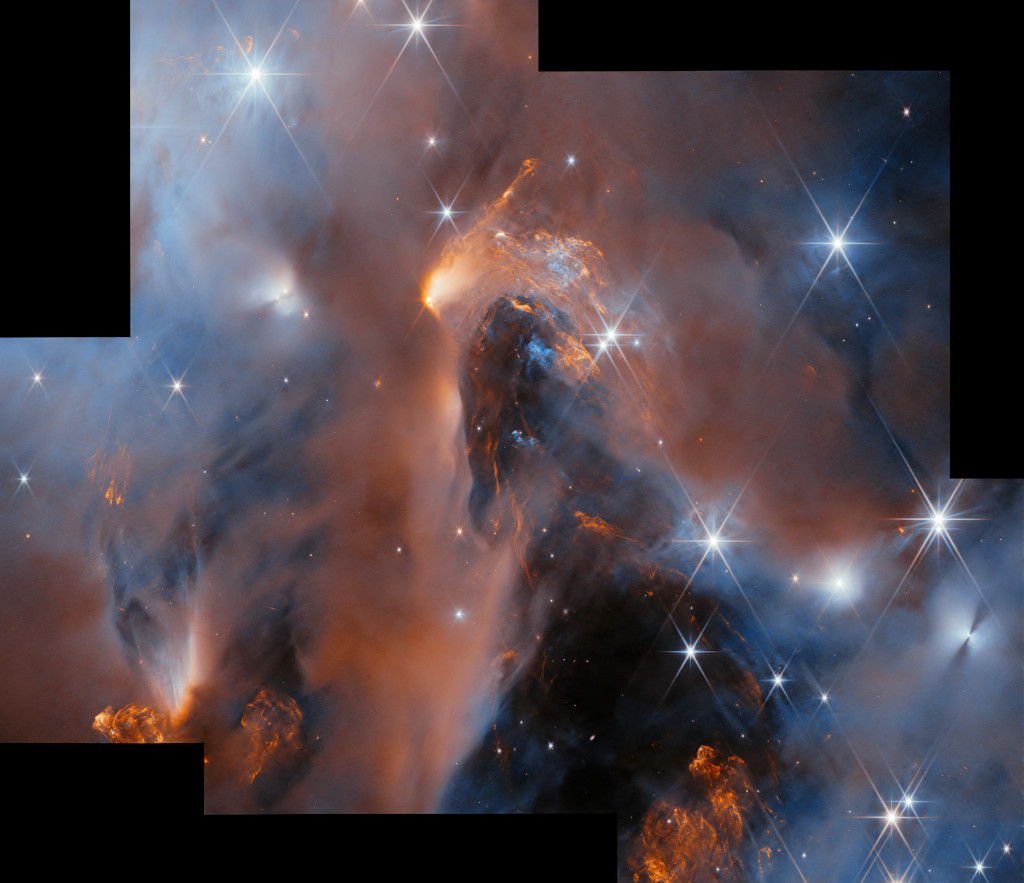
see full post...
Neil Ellwood Peart OC (September 12, 1952 – January 7, 2020) was a Canadian and American musician, known as the drummer and primary lyricist of the rock band Rush. He was known to fans by the nickname ‘The Professor’, derived from the Gilligan’s Island character of the same name. His drumming was renowned for its technical proficiency and his live performances for their exacting nature and stamina. Peart earned numerous awards for his musical performances, including an induction into the Modern Drummer Readers Poll Hall of Fame in 1983 at the age of thirty, making him the youngest person ever so honoured.
Peart was born in Hamilton, Ontario, and grew up in Port Dalhousie (now part of St. Catharines). During adolescence, he floated between regional bands in pursuit of a career as a full-time drummer. After a discouraging stint in England, Peart returned home to concentrate on music where he joined Rush, a Toronto band, in mid-1974, six years after its formation. Together they released nineteen studio albums, with ten exceeding a million copies sold in the United States. Billboard lists the band third in “most consecutive gold or platinum albums by a rock band”.
Early in his career, Peart’s performance style was deeply rooted in hard rock. He drew most of his inspiration from drummers such as Keith Moon, Ginger Baker, and John Bonham, players who at the time were at the forefront of the British hard rock scene. As time passed, he began to emulate jazz and big band musicians Gene Krupa and Buddy Rich. In 1994, Peart became a friend and pupil of jazz instructor Freddie Gruber. It was during this time that Peart revamped his playing style by incorporating jazz and swing components.
In addition to serving as Rush’s primary lyricist, Peart published several memoirs about his travels. His lyrics for Rush addressed universal themes and diverse subjects including science fiction, fantasy, and philosophy, as well as secular, humanitarian, and libertarian themes. Peart wrote a total of seven nonfiction books focused on his travels and personal stories. He also coauthored with Kevin J. Anderson three steampunkfantasy novels based on Rush’s final album, Clockwork Angels. The two also wrote a dark fantasy novella, Drumbeats, inspired by Peart’s travels in Africa.
Peart announced his retirement from touring in an interview with Drumhead Magazine in December 2015. In January 2018, bandmate Alex Lifeson confirmed that Rush had disbanded also due to Peart’s health issues. During his last years Peart lived in Santa Monica, California, with his wife, Carrie Nuttall, and daughter. After a three-and-a-half-year illness, Peart died of glioblastoma on January 7, 2020, at age 67.
see full post...
Maria Muldaur (born Maria Grazia Rosa Domenica D’Amato; September 12, 1942) is an American folk and blues singer who was part of the American folk music revival in the early 1960s. She recorded the 1973 hit song “Midnight at the Oasis” and has recorded albums in the folk, blues, early jazz, gospel, country, and R&Btraditions.
She was the wife of musician Geoff Muldaur and is the mother of singer-songwriter Jenni Muldaur.
see full post...“Papa” John DeFrancesco (September 12, 1940 – June 25, 2024) was an American jazz organist and vocalist, and father of Joey DeFrancesco and Johnny DeFrancesco. DeFrancesco died on June 25, 2024, at the age of 83.
see full post...
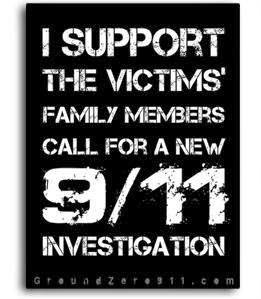


The dark Horsehead Nebula and the glowing Orion Nebula are contrasting cosmic vistas. Adrift 1,500 light-years away in one of the night sky’s most recognizable constellations, they appear in opposite corners of the abovestunning mosaic. The familiar Horsehead nebula appears as a dark cloud, a small silhouette notched against the long glow of hydrogen — here shown in gold — at the lower left. Alnitak is the easternmost star in Orion’s belt and is seen as the bright star to the left of the Horsehead. Just below Alnitak is the Flame Nebula, with clouds of bright emission and dramatic dark dust lanes. The magnificent emission region, the Orion Nebula (aka M42), lies at the upper right. Immediately to its left is a prominent reflection nebula sometimes called the Running Man. Pervasive tendrils of glowing hydrogen gas are easily traced throughout the region.
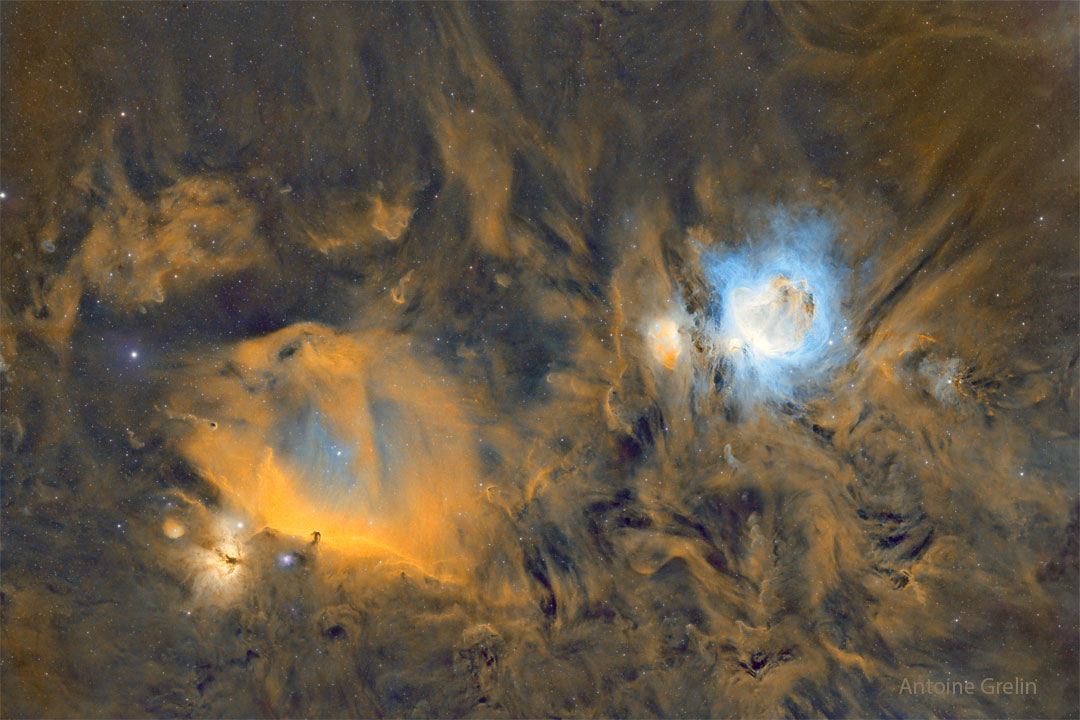
Mickey Hart (born Michael Steven Hartman, September 11, 1943 Brooklyn, NY) is an American percussionist. He is best known as one of the two drummers of the rock band Grateful Dead. He was a member of the Grateful Dead from September 1967 until February 1971, and again from October 1974 until their final show in July 1995. He and fellow Dead drummer Bill Kreutzmann earned the nickname “the rhythm devils“.
see full post...
Leo Kottke (born September 11, 1945) is an American acoustic guitarist. He is known for a fingerpicking style that draws on blues, jazz, and folk music, and for syncopated, polyphonic melodies. He has overcome a series of personal obstacles, including partial loss of hearing and a nearly career-ending bout with tendon damage in his right hand, to emerge as a widely recognized master of his instrument. He resides in the Minneapolis area with his family.
Focusing primarily on instrumental composition and playing, Kottke also sings sporadically, in an unconventional yet expressive baritone described by himself as sounding like “geese farts on a muggy day”. In concert, Kottke intersperses humorous and often bizarre monologues with vocal and instrumental selections from throughout his career, played solo on six and twelve string guitars.
see full post...Victor Lemonte Wooten (born September 11, 1964 Mountain Home, ID) is an American bassist, songwriter, and record producer. He has been the bassist for Béla Fleck and the Flecktones since the group’s formation in 1988 and a member of the band SMV with two other bassists, Stanley Clarke and Marcus Miller. From 2017 to 2019 he recorded as the bassist for the metal band Nitro.
He owns Vix Records, which releases his albums. He wrote the novel The Music Lesson: A Spiritual Search for Growth Through Music. He later released the book’s sequel, The Spirit of Music: The Lesson Continues, on February 2, 2021.
Wooten is the recipient of five Grammy Awards. He won the Bass Player of the Year award from Bass Player magazine three times and is the first person to win the award more than once. In 2011, he was ranked No. 10 in the Top 10 Bassists of All Time by readers of Rolling Stone magazine.
In 2018–2019 Wooten was diagnosed with a rare neurological condition called focal dystonia in his hands and upper body, which had been limiting his ability to play in previous years, but has since abated somewhat.
see full post...Hiram Law Bullock (September 11, 1955 – July 25, 2008) was an American guitaristknown mainly for playing in jazz funk and jazz fusion, but he also worked as a session musician in a variety of genres.
Bullock was born in Osaka, Japan, to African American parents serving in the U.S. military. At the age of two he returned to Baltimore, Maryland, with his parents and showed musical talent. He studied piano at the city’s Peabody Conservatory of Music, giving his first public performance at the age of six. After playing saxophone and bass guitar, he took up the electric guitar at age sixteen.
Bullock attended McDonogh School for Boys in Reisterstown, Maryland. He was captain of the band in middle school. He studied at the University of Miami, where he met guitarists Pat Metheny and Steve Morse, and bass players Jaco Pastorius and Will Lee. He paid for tuition by performing at nightclubs in Florida before moving to New York. He became best known for playing with Lee on Late Night with David Letterman and working with David Sanborn and Bob James. His work can be heard on Bob James’ Angela which is also the theme song for the TV show Taxi, Steely Dan‘s Gaucho (1980), Paul Simon‘s One Trick Pony (1980), Sting‘s …Nothing Like the Sun (1987) and Billy Joel‘s The Stranger (1977). He also worked with Harry Belafonte, Marcus Miller, Carla Bley, Miles Davis, Ruben Rada, and Gil Evans.
see full post...Roosevelt “Baby Face” Willette (September 11, 1933 – April 1, 1971) was an American hard bop and soul-jazz musician who played the Hammond organ.
He was born Roosevelt James Willett (no “e”), in Little Rock, Arkansas, in 1933 according to researchers Bob Eagle and Eric LeBlanc, though other sources state 1934 or 1937. According to the liner notes on his first Blue Note album, Grant’s First Stand, Willette was born in New Orleans.
His mother was a missionary who played the piano in the church where his father was a minister. As a result, his musical roots were in gospel. Willette became involved in music by playing the piano for various gospel groups, and accompanied his sisters Dorothy and Georgia, who toured and recorded as the Willett Sisters. He spent his early career travelling across the United States, Canada and Cuba, as pianist with the bands of King Kolax, Joe Houston, Johnny Otis and Big Jay McNeely, among others.
He made his first recording as Baby Face Willette (“Wake Up, Get Out” b/w “Cool Blues”) in Los Angeles in 1952, but soon moved to Chicago and married. He recorded tracks including “Can’t Keep From Lovin’ You” and “Why” for Vee-Jay Records that year, but they were not released until late 1955. He played in both rhythm and blues and jazz bands, playing piano before switching to organ around 1958. His organ playing was inspired by Jimmy Smith‘s work, though Willette’s style is more heavily influenced by gospel, blues and soul jazz than Smith’s. Willette was also a professional hairdresser. Before his time in New York City, he was based out of Milwaukee, playing with his vocalist wife Jo Gibson at clubs such as The Flame Club, The Pelican Club, The Moonglow and Max’s among others.
see full post...